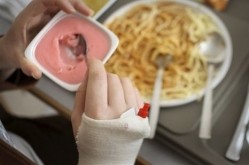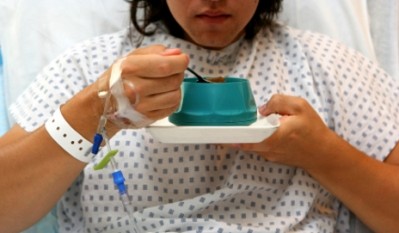Government’s hospital food standards ‘woefully inadequate’

Health secretary Jeremy Hunt called for the introduction of mandatory food standards across all hospitals that would be “legally binding” and part of every UK hospital’s contract.
However, Alex Jackson, co-ordinator of the Campaign for Better Hospital Food, objected to the government’s refusal to introduce a new law to set hospital food standards as legislation.
‘Pulled the wool over our eyes’
“Jeremy Hunt’s announcement that he will introduce ‘legally-binding’ standards for hospital food appear to fulfil what we have always strived for, yet we’re left feeling that he has pulled the wool over our eyes,” he claimed.
“The government may have inserted a new clause in a legal document, but that won’t be what most people consider to be legally-binding. It’s woefully inadequate.”
As part of the new standards, every patient would be screened for malnutrition and have a food plan that met their social, cultural and clinical needs. Hospitals would be forced to ensure that patients get the help they require to eat and drink.
The other requirements would be that food should be sourced sustainably and that hospital canteens promoted healthy diets for staff and visitors that complied with government regulations on salt and sugar.
Jackson claimed the food standards were weak and only reflected basic catering and care standards which were already commonly implemented in the NHS.
He called for hospital food standards to be set down in legislation, similarly to school food standards, and therefore universally applied to all hospitals and protected by publicly elected representatives.
“The government still refuses to do this and has only committed to including the standards in NHS commissioning contracts, which are long documents full of clauses that without proper enforcement and monitoring can be ignored by hospitals.”
Readily accessible
Dianne Jeffrey, chairman of Age UK and leader of the Hospital Food Standards Panel, said if the standards were implemented the food and drink in hospitals across the country would be tasty and nourishing and readily accessible to patients.
“There are already many hospitals that serve high quality, nutritious, appetising food but until now it’s been up to each hospital to ensure that this is a priority,” she added.
“We believe that if every hospital in the country has an overarching food and drink strategy guided by our recommendations, not only will we help hospital patients at a difficult time in their lives but also support hospital visitors and NHS staff in staying healthy too.”

















